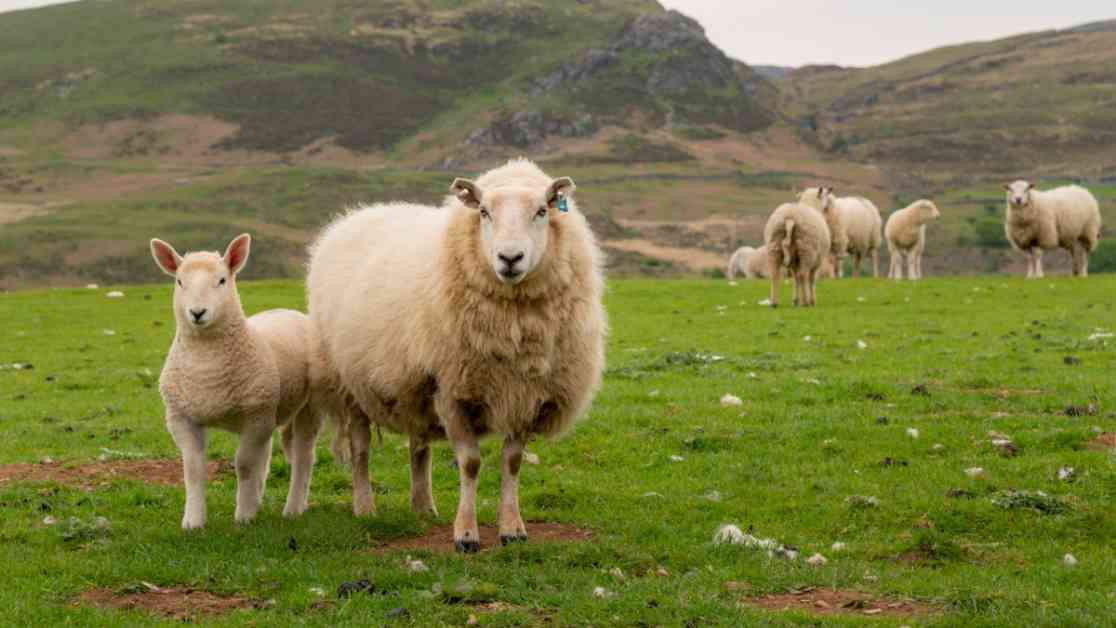The bluetongue virus has been making headlines in the UK recently, with three new cases confirmed in two farms in Norfolk and Suffolk. This comes after the first confirmed case in the country since March, also in Norfolk. Bluetongue is a virus spread by midges, and while it does not pose any food safety risks to humans, it can be deadly for farm animals like sheep. The government has imposed temporary control zones (TCZ) around affected areas, which restrict the movement of livestock and can cause considerable hardship for farmers.
Understanding the Impact on Farmers
Farmers in affected areas are facing a challenging situation due to the spread of bluetongue. The imposition of TCZs means that they are unable to move their animals off summer grazing land or sell them in the autumn, leading to financial strain. In addition, animals must be tested for the virus and potentially culled, causing stress and emotional turmoil for farmers who care for their livestock.
Dr. Carrie Batten, head of the national reference laboratory for bluetongue at The Pirbright Institute, highlighted the economic impact on rural life when livestock movement is restricted in affected areas. Despite the potential hardships faced by farmers, she reassured consumers that any outbreak of bluetongue is unlikely to affect them or result in meat shortages. The disease does not pose any risk to humans or the food chain, as confirmed by Dr. Batten, who is also the designated expert for Bluetongue virus by the World Organisation for Animal Health.
Government Response and Control Measures
The Department for Environment, Food & Rural Affairs has confirmed the new cases of bluetongue and extended the existing TCZ in response. The affected animals will be humanely culled to minimize the risk of onward transmission, with movement restrictions applying to all ruminants and camelids. While there is no evidence of bluetongue circulating in midges in Britain, officials warn that the insects can be blown long distances from mainland Europe, posing a greater risk to susceptible animals in the UK.
Officials have noted a rapid increase in bluetongue cases in Europe, particularly in countries like the Netherlands, Germany, France, Luxembourg, and Denmark. This heightened activity increases the risk of the disease spreading to Britain through infected midges. Bluetongue affects a variety of livestock, including cattle, sheep, goats, deer, and llamas, with symptoms such as a blue and swollen tongue, fever, reduced milk yield, and potentially death in severe cases.
Previous Cases and Current Situation
The last case of bluetongue in Britain was confirmed in March 2024, with a total of 126 cases reported between November 2023 and March of the following year. These cases were predominantly in cattle, with a smaller number in sheep, across 73 premises in four counties. The BTV-3 strain of bluetongue was identified in Kent, Norfolk, and Suffolk during this period, indicating the presence of the virus in different regions of England.
As the situation evolves, farmers and officials are working together to monitor and control the spread of bluetongue in the UK. While the impact on rural communities and livestock is significant, efforts are being made to minimize the risks and protect the health and welfare of animals. Consumers can rest assured that the food chain remains safe from the bluetongue virus, with stringent measures in place to prevent any contamination.
In conclusion, the spread of bluetongue in the UK is a concerning issue for farmers and officials alike. The government’s response to new cases and the implementation of control measures are crucial in containing the virus and protecting livestock. By understanding the risks and implications of bluetongue, stakeholders can work together to mitigate the impact and ensure the safety of animals and consumers.













